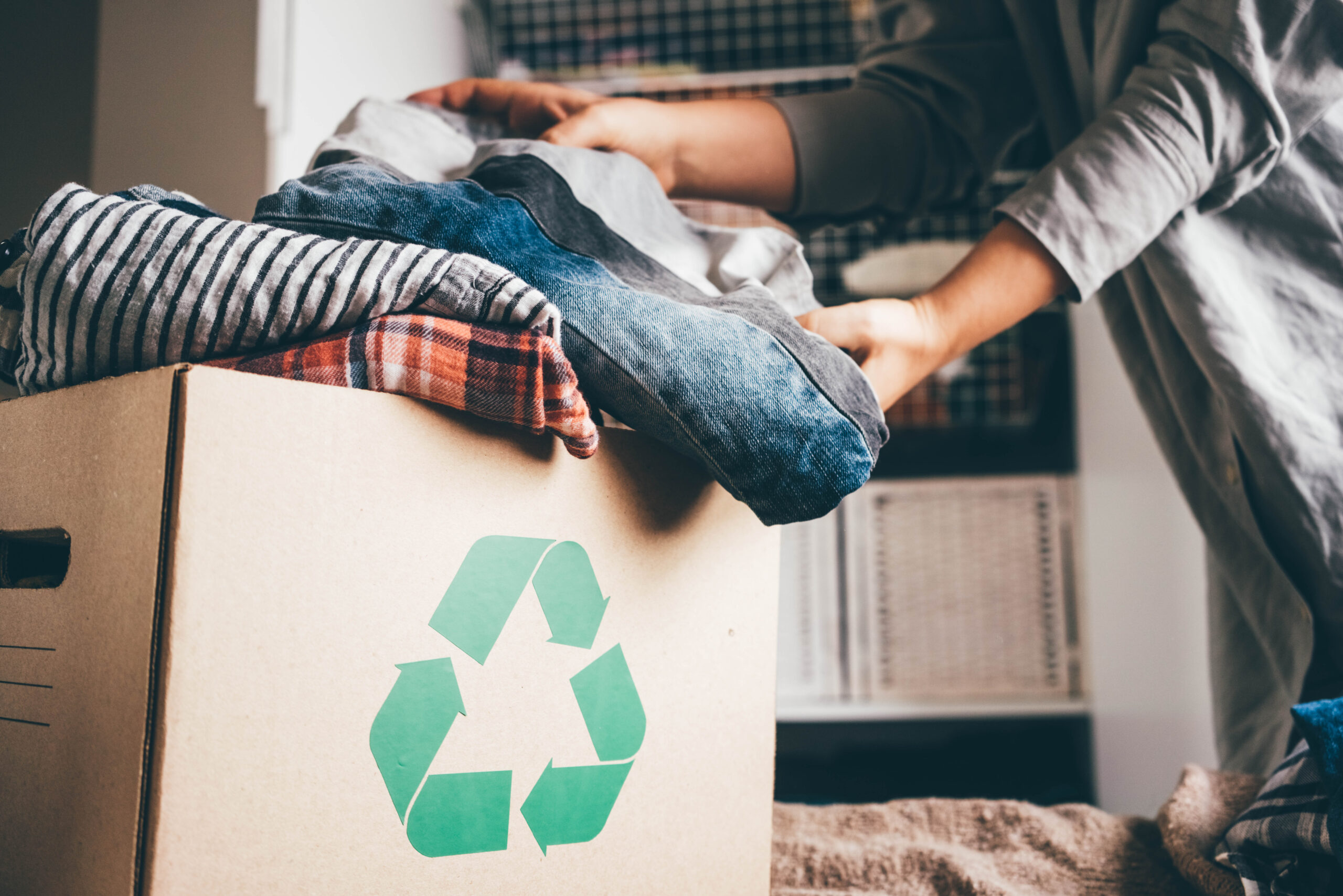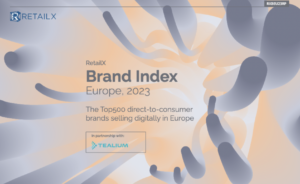The latest RetailX Brand Index Europe 2023 report highlights that sustainability is moving rapidly up the agenda for both shoppers and brands.
As the first UN targets for reducing greenhouse gas emissions approach, shoppers are becoming increasingly aware of the effect their buying habits have on both the environment and the risks of climate change if the targets are not met. Those emissions, says the UN’s Sustainable Development Goals Report of 2022, must peak by 2025 before falling by 43% by 2030, then to net zero by 2050 if the world community is to meet its still-possible goal of keeping global average temperatures below 1.5°C above pre-industrial levels.
Brands have an important role in helping customers make the necessary changes to their lifestyles. If they don’t, they risk losing customers, either because they choose other suppliers, or because they cut down on consumption.
Changing consumer expectations
Changing customer attitudes are encouraging brands to move forward with plans to improve their sustainability. Research suggests that if they don’t follow shoppers’ lead on their own terms, they may well be pushed into it in the longer-term. In 2022, an Accenture study questioned more than 2,000 UK adults and found concern for the environment had grown compared to two years earlier.
More (64%) said they were concerned about the outlook for the environment than for their own financial situation (54%) or their own health (40%). And almost a third (31%) were more likely to shop in line with their personal values and ethics than they had been two years earlier, while 32% said they expected more from brands and retailers when it came to reporting the impact of their business activities on the environment.
More than half (53%) agreed with at least one of those statements, although only 9% agreed with both. The results of that change of heart can be seen in a growing willingness to buy second-hand, recycled or refurbished products (63%) among respondents.
The shift in attitudes will be reflected in more active shopping strategies, more recent research suggests. A study from ecommerce growth-focused Quickfire Digital and digital performance marketing specialist Climbing Trees, published in March 2023, found that 81% of UK consumers will start to boycott clothing brands that do not put sustainable fashion at the forefront of their businesses in the next two years. When the study asked shoppers what would drive them away, the use of slave labour was the biggest factor, with 49% prepared to stop buying from brands that benefit from forced working.
Wasteful packaging (32%), lack of sustainable materials and fabrics (22%) and not enough choice of sustainable products (21%) were among the top priorities, while factors including unsustainable supply chains and delivery options, stating an approach to carbon offsetting and proactive measures to reduce waste were also named.
“Consumers are all-too familiar with some of the practices within the fashion industry and the impact that fast fashion, in particular, has on the environment,” says Nathan Lomax, co-founder of Quickfire Digital. “This is a massive wake-up call for apparel brands to get your house in order and make doing the right thing your priority. Or face the alternative of a future without customers.”
How brands are approaching sustainability
Customers are asking for more information about where their products are made and, increasingly, the way they approach manufacturing. Members of the Brand Index – which this year includes an array of sustainability metrics – are responding.
Getting the materials right is the first step for many in rethinking their effect on the environment. How difficult that is to achieve will depend on the products that brands sell but plastic bricks brand Lego is already looking hard at the climate credentials of its toys. It recently announced a partnership with European Energy and healthcare company Novo Nordisk to use renewable energy to create e-methanol for use in the production of its bricks, reducing the use of carbon in its manufacturing processes.
“As part of our commitment to building a sustainable future for children, we have committed to making our products from more sustainable values,” said Nelleke van der Pull, vice president of materials at the Lego Group, at the time. “The project will give us our third sustainable material we’ve developed alongside bio-PE and prototype bricks made form recycled PET.”
Fashion has long had an outsized effect on the environment – Friends of the Earth Europe analysis from 2021 suggested that of 5.8mn tonnes of textiles discarded by EU consumers every year, only a quarter were recycled, with 4.3mn tonnes dumped in landfill.
Meanwhile, Clothes Aid figures suggest that 350k tonnes of used – but still wearable – clothing is sent to landfill in the UK each year, although 700k tonnes also go on to recycling, clothes collection, charity and other second life destinations.
Marks & Spencer is focused on what its products are made of through its Plan A programme, which prioritises the use of organic cotton and also operates a ‘shwopping’ scheme, by which those who drop off their unwanted clothes in store can earn treats through its Sparks loyalty scheme. Since 2008, says M&S, its Shwopping partnership with Oxfam has seen it collect more than 35mn items and contribute an estimated £23mn to the charity.
Others are joining in. Joules last year launched a partnership with Reskinned in which shoppers returning older clothes for resale or for recycling are rewarded with a discount code that they can use instore or online. Second-hand clothing – everything from kids’ clothes to women’s and menswear – is then dropped on the Reskinned section of its website. The initiative is part of Joules’ wider Responsibly Joules strategy, which it describes as a commitment to “crafting responsibly sourced, hand-me-down worthy garments that, with a little care and repair, can be passed on to family and friends”.
Rental schemes – such as the Moss Box offered by clothing brand Moss, which combines subscription and rental – enable shoppers to hire rather than buy clothing and equipment that they only plan to use short-term. According to Future Markets Insight data, the online clothing rental market is set to grow by 11% to €1.8bn between 2021 and 2031.
Clothing brand Uniqlo and homewares brand Ikea are among those that have redesigned their stores around making them more sustainable. Uniqlo parent company Fast Retailing is trialling a new store design that will help it save about 40% of energy costs compared to a standard Uniqlo store, as it targets a 90% reduction in greenhouse gas emissions from both its stores and offices by 2030, compared to 2019 levels.
Ikea, meanwhile, built circular design and repair ideas into a new store in Shanghai, China that are set to be rolled out in the future.
Leading and Elite brands in the RetailX Brand Index are now taking sustainability very seriously indeed, making a real difference by doing so. That makes sense, given that the future of their businesses may well depend on it.
This feature originally appeared in the RetailX Brand Index Europe 2023 report, which will be discussed in full on 28 September 2023 in an in-depth webinar between 14.00 – 15.00.








